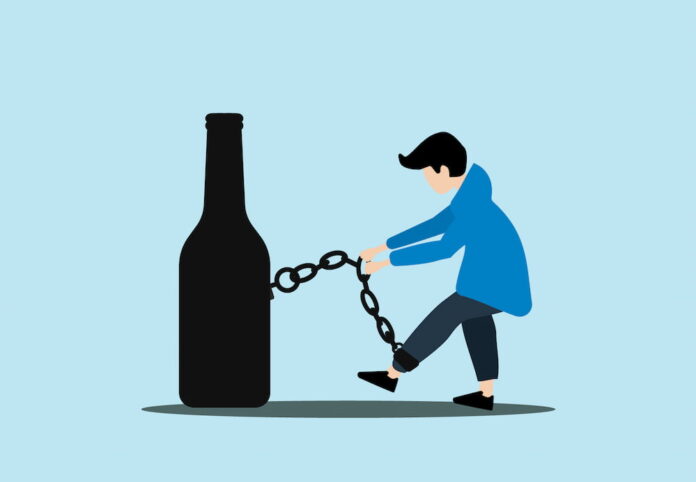The U.S. Food and Drug Administration has approved four medications to help treat alcoholism: acamprosate, disulfiram, naltrexone, and topiramate. However, these medications may not work for every client. That’s why talking to your healthcare professional before taking them is essential.
Acamprosate
Acamprosate increases abstinence rates among clients with alcohol use disorder. It is one of the recently approved treatments for alcohol dependence in the U.S. If you know of someone who might benefit from rehabilitation from alcohol abuse disorder, please visit website for more detailed information and resources.
Here is how it works:
- Acamprosate reduces the adverse effects people are likely to experience when they decide to reduce alcohol use, which can lead to relapse.
- It corrects the underlying neurochemical changes caused by chronic drinking, helping the brain to restore its normal function.
Inform your doctor if you are allergic to sulfites or any of the tablets’ ingredients before taking it. People with the following conditions should avoid the medicine:
- People who are breastfeeding
- People with allergic reactions to Campral or sulfites
- Clients who suffer from depression
- People with kidney disease
- Someone who is pregnant or trying to get pregnant.
Disulfiram
The first medicine to be approved by the U.S. to treat alcohol dependence was disulfiram. It causes severe adverse reactions when someone taking the medication consumes alcohol. Some of the unpleasant effects include:
- Headache
- Vomiting
- Nausea
- Sweating
- Chest pain
- Flushing
- Sweating.
Many of the effects mentioned above can last an hour or longer. Here are a few things you should take into consideration before you begin taking the medication:
- People who are on the verge of quitting alcoholism but cannot use acamprosate and naltrexone due to complications or other medical conditions are encouraged to use this medicine.
- The treatment is not recommended for people with coronary heart disease or psychosis.
- After one stops drinking, they should wait at least 12 hours before taking the medicine.
Naltrexone
Naltrexone works by decreasing the craving for alcohol. It works in the brain by dismissing the pleasurable feeling that comes with getting high. It can be injected or taken orally.
Some of the primary adverse effects of the injectable and the oral version of naltrexone include:
- Nausea
- Diarrhea
- Dizziness.
Clients with significant liver disease and those who require opiate medications to manage pain cannot take the medicine. Clients should be free of opioids for between seven to ten days before taking naltrexone. Observing this rule will help them avoid precipitating an opioid-withdrawal syndrome.
Topiramate
Topiramate was used in the recent past to treat seizures and headaches. However, doctors now use it to treat alcohol use disorder. Topiramate reduces alcohol cravings as well as anxiety and depression present during the initial stage of alcohol withdrawal.
Medication is one of the approaches medical professionals use to help clients with unhealthy alcohol use decrease their alcohol intake. It plays a vital role in managing alcohol withdrawal symptoms by changing how the body and brain react and managing the long-term effects.
However, the effectiveness of the medications varies from one person to another. That’s why it’s essential to visit an alcohol treatment facility for professional help.
Read Also
- The Role of Ingredients in Your Skincare: What to Look ForSkincare works best when you understand what goes into the products you use daily. Ingredients form the foundation of every formula and determine how the skin reacts over time. Each cream, cleanser, or serum has its own role, determined by its ingredients. Learning what to look for helps you pick products that help skin and… Read more: The Role of Ingredients in Your Skincare: What to Look For
- Your Guide to Finding a Trusted DentistChoosing the right dentist in Sandgate or your area is crucial for maintaining good oral health and achieving a confident smile. With countless dental practices to choose from, patients may find the task daunting. Data from the American Dental Association indicates that there are over 200,000 practicing dentists in the United States, highlighting the importance… Read more: Your Guide to Finding a Trusted Dentist
- Achieving a Defined, Balanced Facial Contour in SingaporeA well-defined jawline and a gently tapered lower face — commonly referred to as a V-shaped face — is a look many people aspire to. In Singapore’s beauty and aesthetic scene, treatments that help refine facial contours have grown in popularity as more individuals seek subtle, natural enhancements that boost confidence and balance facial features.… Read more: Achieving a Defined, Balanced Facial Contour in Singapore
- The Wellness Blueprint: How Your DNA Holds the AnswerGenetic testing is revolutionizing preventive healthcare by offering insights into individual health risks. By analyzing DNA, these tests provide a personalized health blueprint that can guide lifestyle and medical decisions. This approach, often referred to as DNA wellness testing, helps to optimize health naturally and prevent potential diseases. In recent years, genetic testing has become… Read more: The Wellness Blueprint: How Your DNA Holds the Answer
- Exploring the Benefits of Infusion Therapy in OKC: The Ultimate GuideUnderstanding Infusion Therapy: A Deep Dive into Its Purpose and Process What exactly is Infusion Therapy? Infusion therapy is an advanced medical treatment that delivers medication and nutrients directly into the bloodstream through a vein, typically via an IV (intravenous) line. This method is particularly beneficial for patients who require a concentrated dose of medication,… Read more: Exploring the Benefits of Infusion Therapy in OKC: The Ultimate Guide
- Ketamine-Assisted Therapies: Impacts on Employee WellbeingWorkplace stress is common today. Many employees feel tired, anxious, or burned out. Regular therapy can help, but some people need more support. Ketamine-assisted therapy is showing good results for mental health. A ketamine-assisted therapist guides each session safely. This therapy can improve mood, focus, and energy. Learning more about it can help teams stay… Read more: Ketamine-Assisted Therapies: Impacts on Employee Wellbeing







